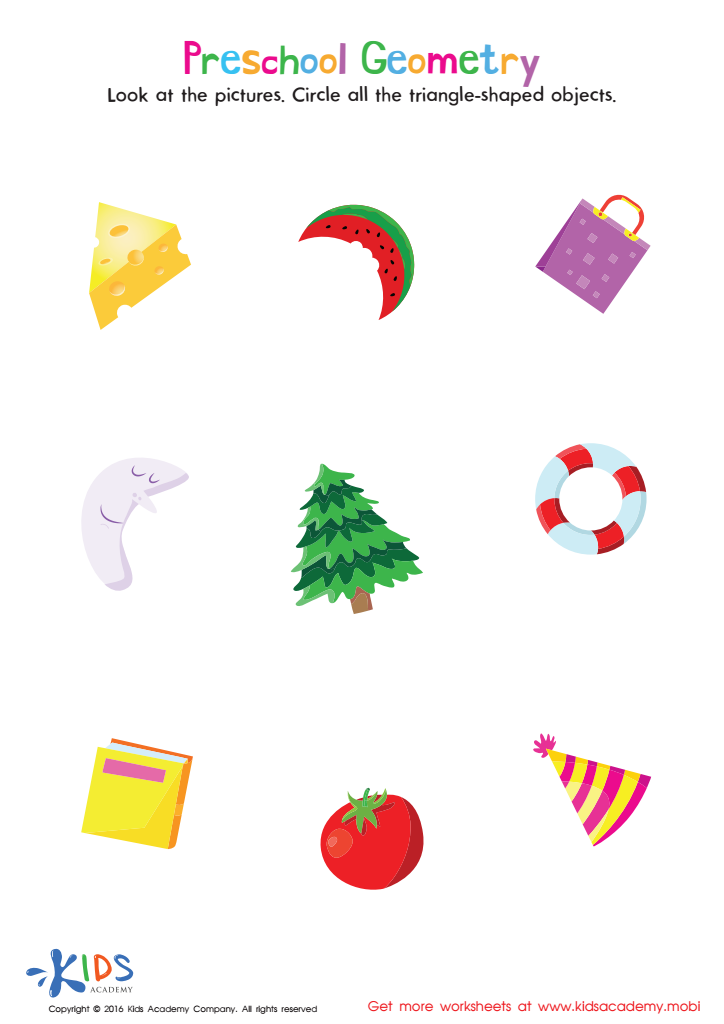Basic geometry understanding Worksheets for Ages 5-7
13 filtered results
-
From - To
Explore our enriching "Basic Geometry Understanding Worksheets" specifically designed for children ages 5 to 7! These engaging activities introduce young learners to fundamental geometric shapes and concepts, fostering early math skills in a fun, interactive way. Our worksheets enhance recognition of shapes such as circles, squares, and triangles, promote spatial awareness, and encourage logical thinking through vibrant illustrations and thoughtful exercises. Ideal for classroom use or homeschooling, these resources support skill development while keeping kids excited about learning. Empower your child’s mathematical journey with our high-quality printable worksheets that make geometry approachable and enjoyable! Discover the joy of learning shapes today!
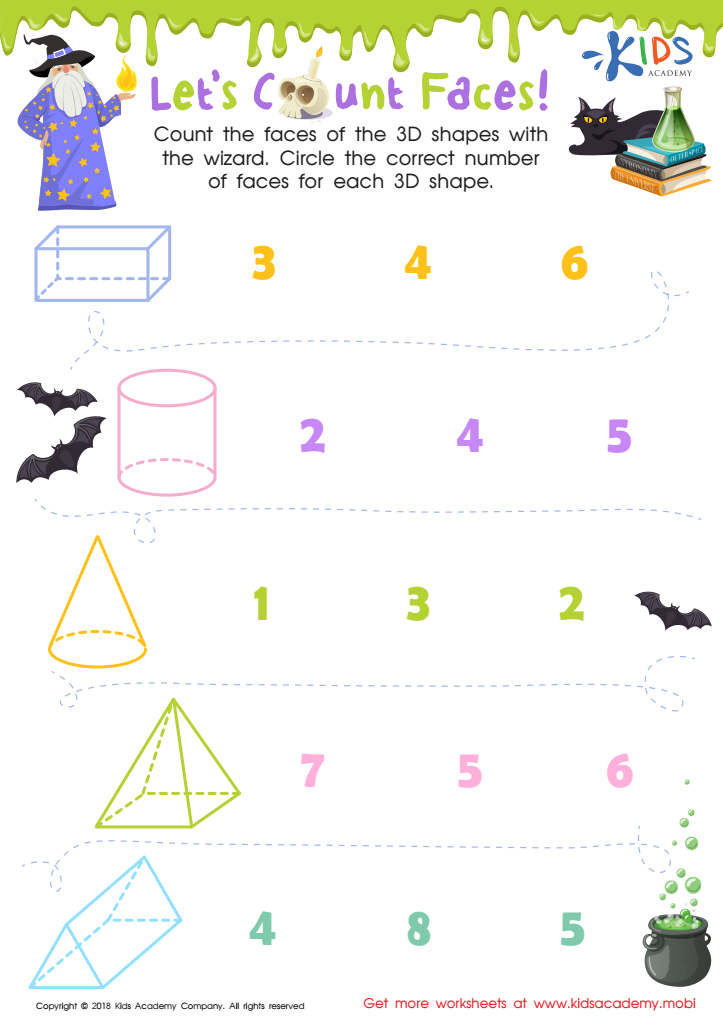

Let's Count Faces! Worksheet
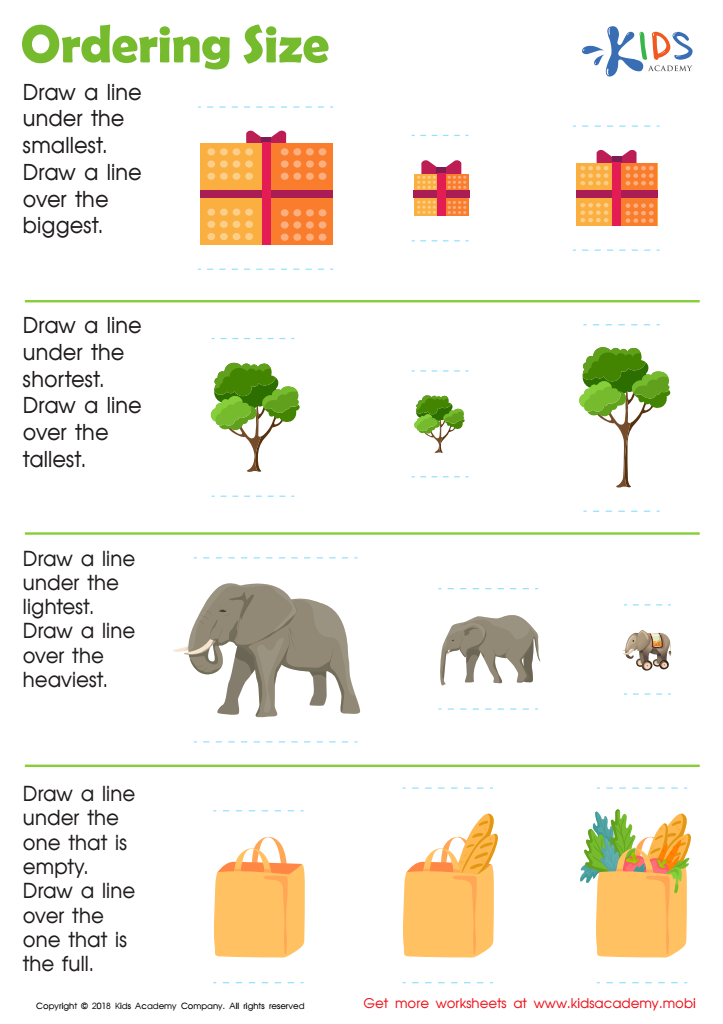

Ordering Size Worksheet
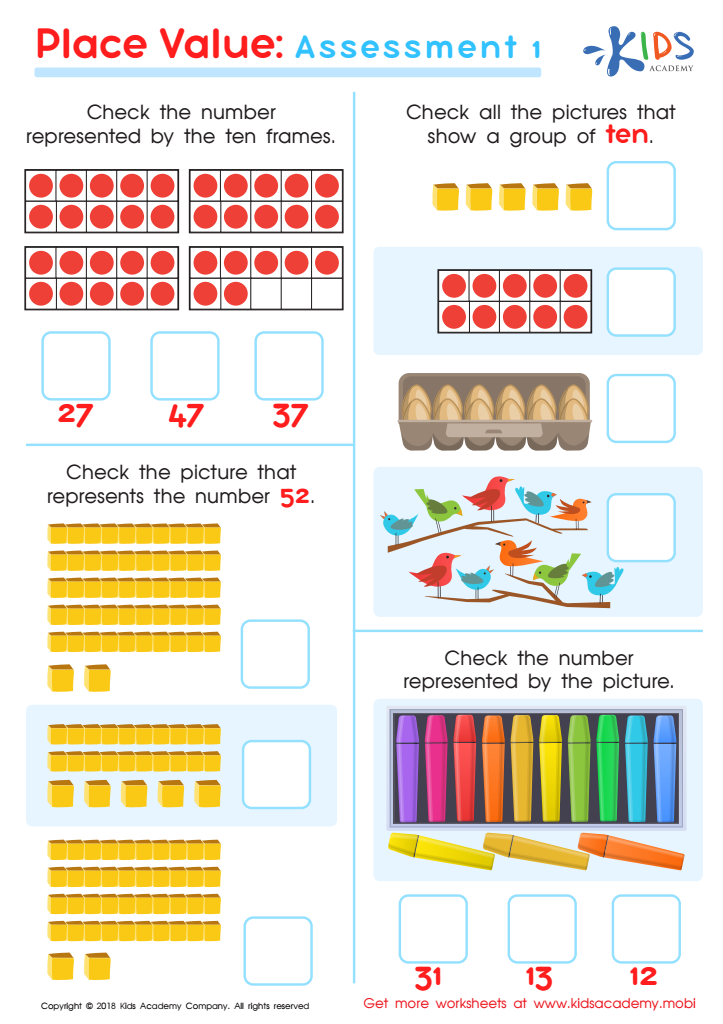

Place Value: Assessment 1 Worksheet
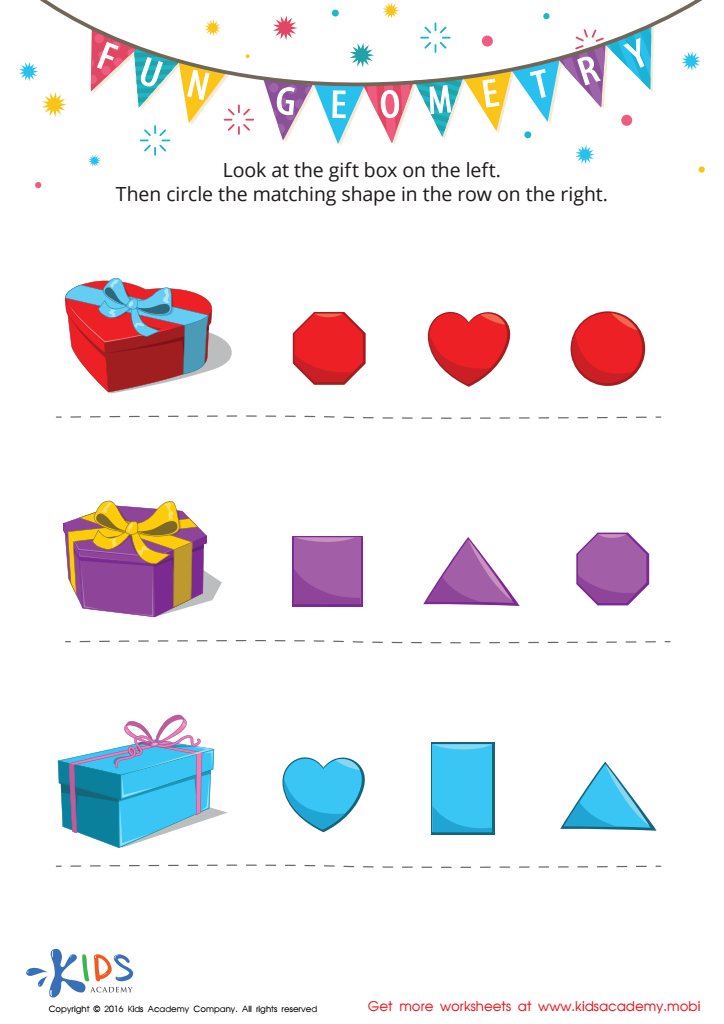

Fun Geometry Worksheet
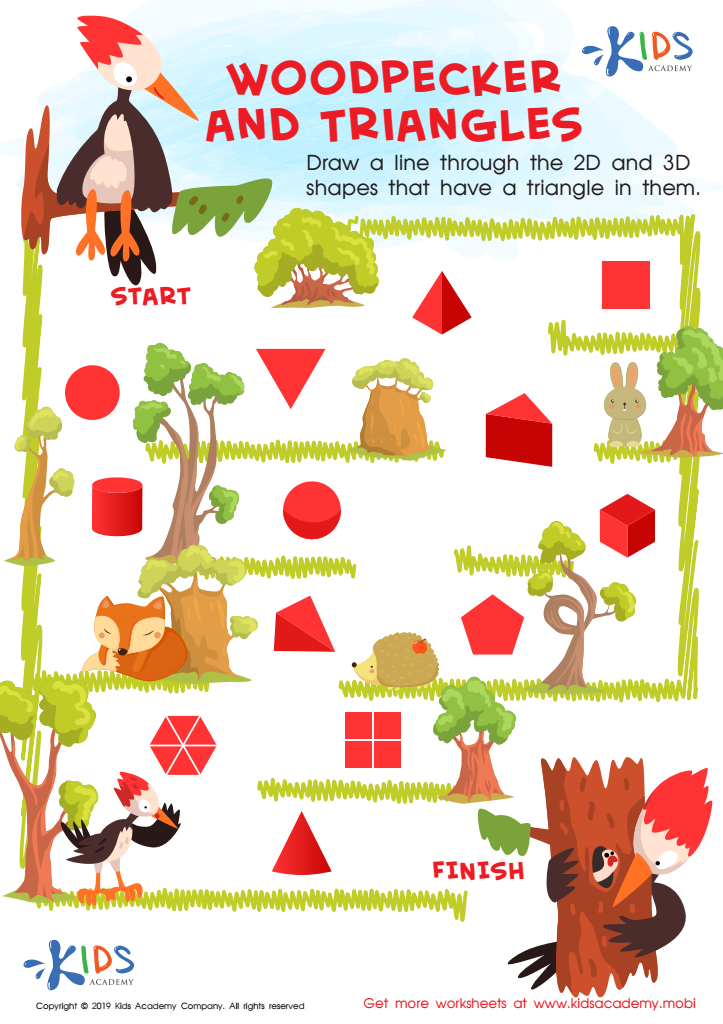

Woodpecker and Triangles Worksheet
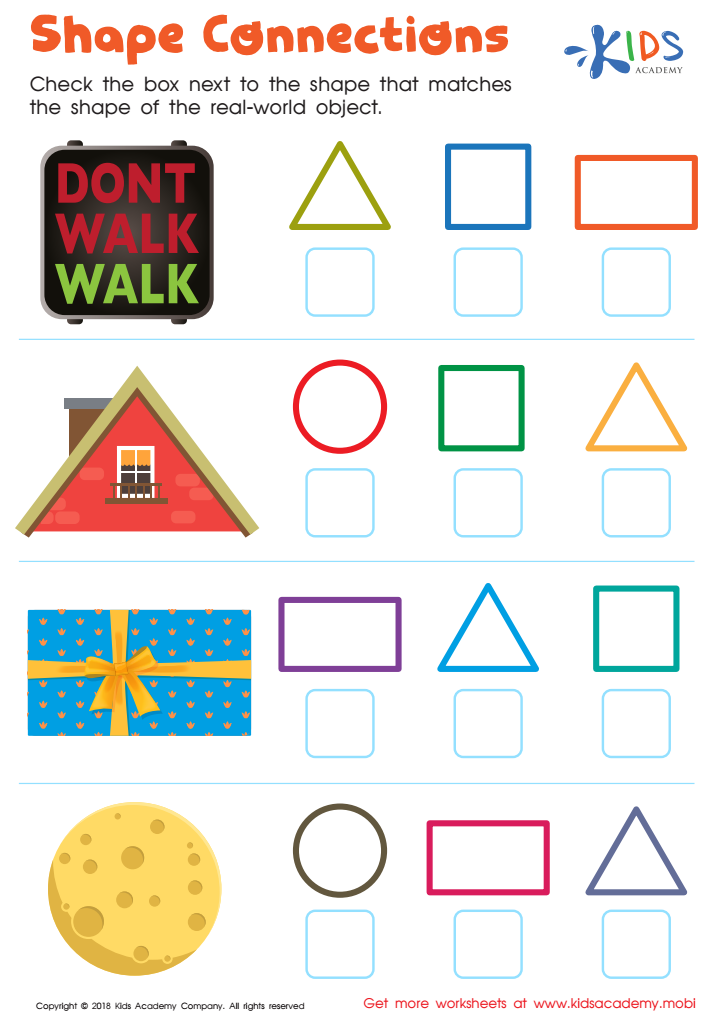

Shape Connections Worksheet
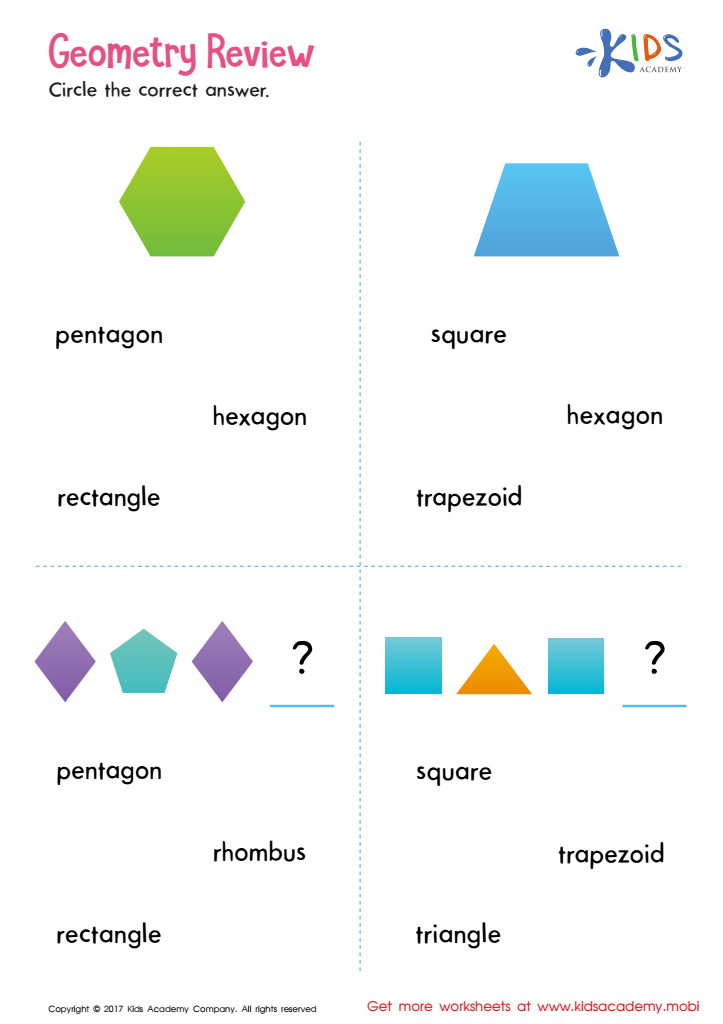

Geometry Review Printable
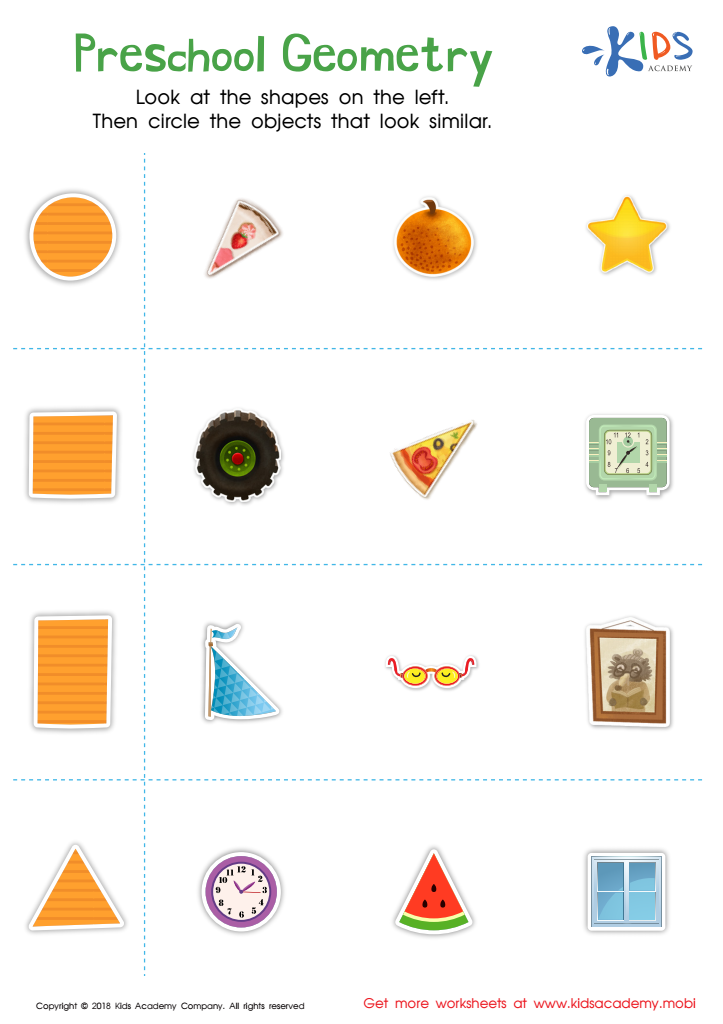

Preschool Geometry Worksheet
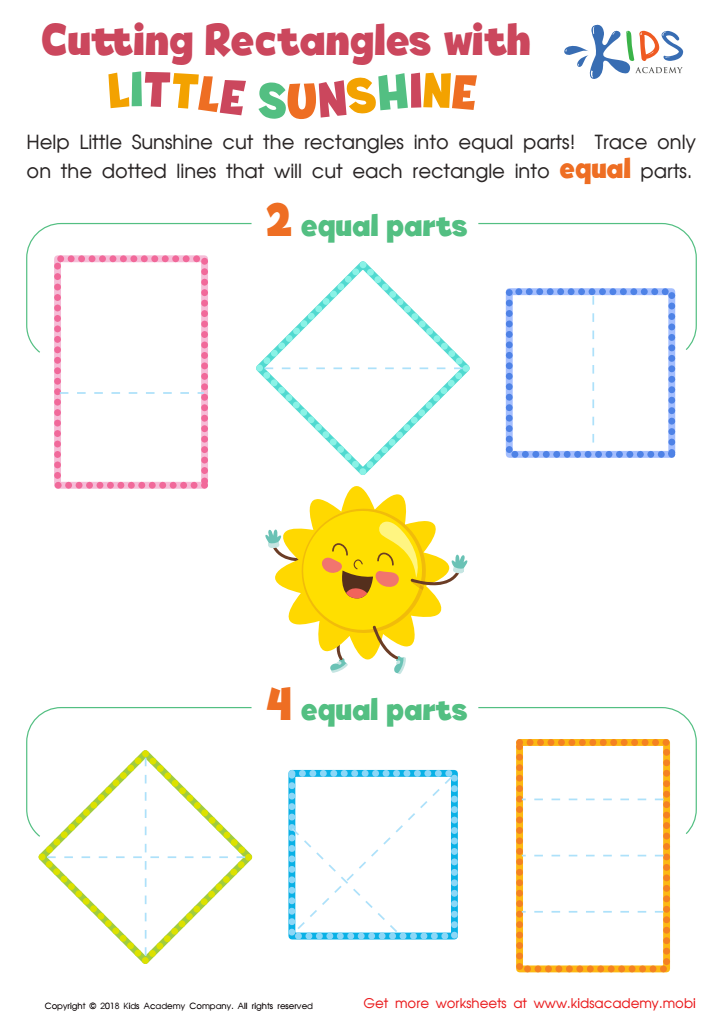

Cutting Rectangles with Little Sunshine Worksheet
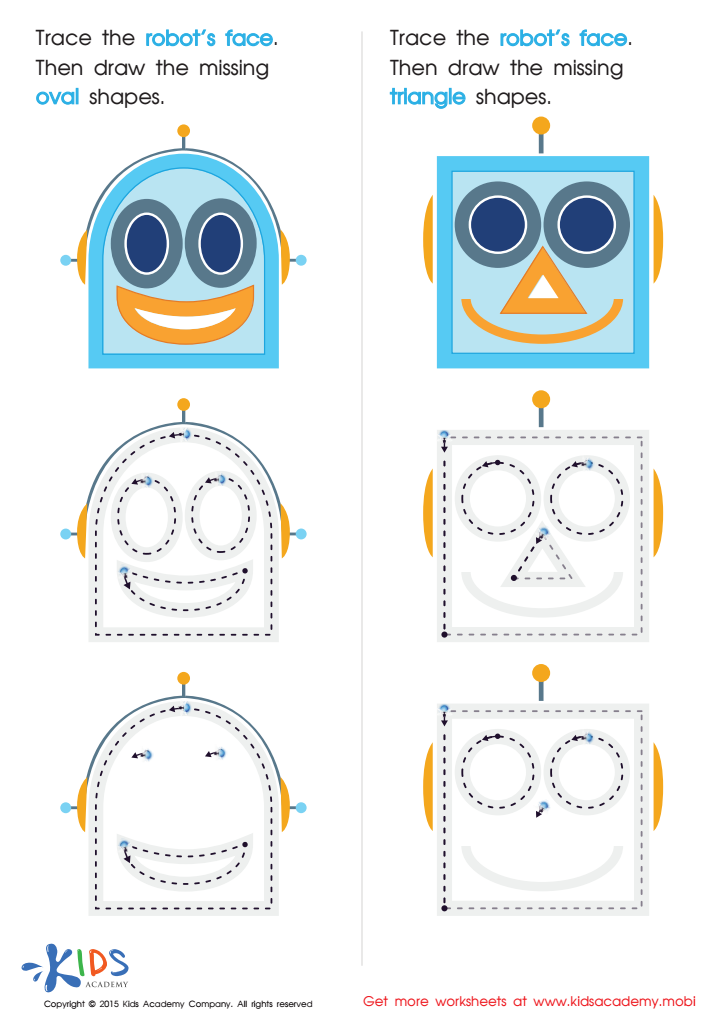

Drawing Ovals And Triangles with Fun Printable
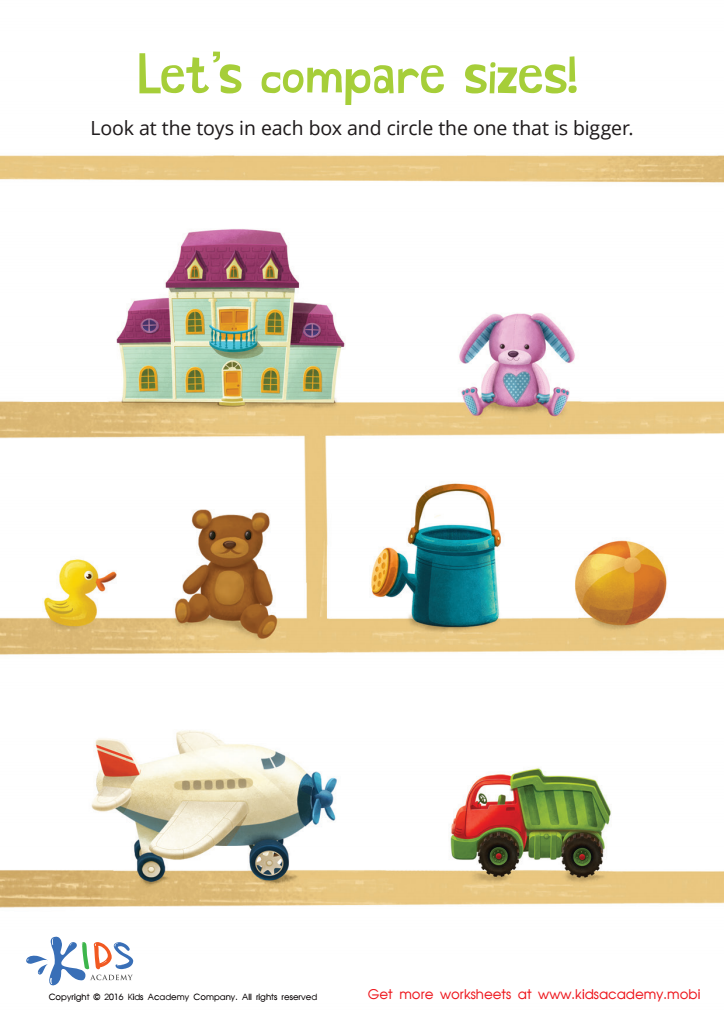

Classifying by Size Sorting Worksheet
Understanding basic geometry is crucial for children aged 5 to 7, as it lays the foundation for their later mathematical abilities and critical thinking skills. At this age, children are naturally curious and eager to explore their environment, using shapes and spatial awareness in their daily lives. By teaching basic geometry concepts, like recognizing shapes, understanding terms like perimeter and area, and exploring spatial relationships, we help them make sense of the world around them.
Geometry enhances problem-solving skills and logical thinking. For example, identifying patterns and relationships improves cognitive skills that are essential for subjects beyond math. Geometry also encourages creativity; when young learners engage in activities like drawing or building with shapes, they express their ideas and understand design and aesthetics.
Moreover, early exposure to geometry supports language development, as children learn to communicate about shapes and spatial concepts. This understanding is not just academic; it gives them practical skills they can use in real-life situations, from organizing spaces to understanding directions. Therefore, parents and teachers should prioritize geometry education in early childhood to foster a love for learning and empower children's intellectual growth, preparing them for more complex concepts in the future.

 Assign to My Students
Assign to My Students

